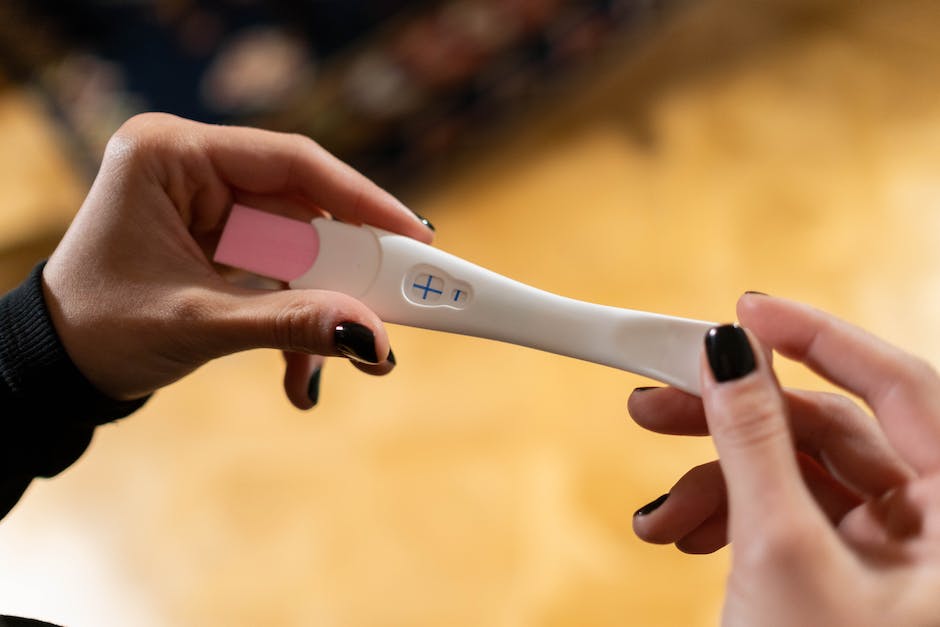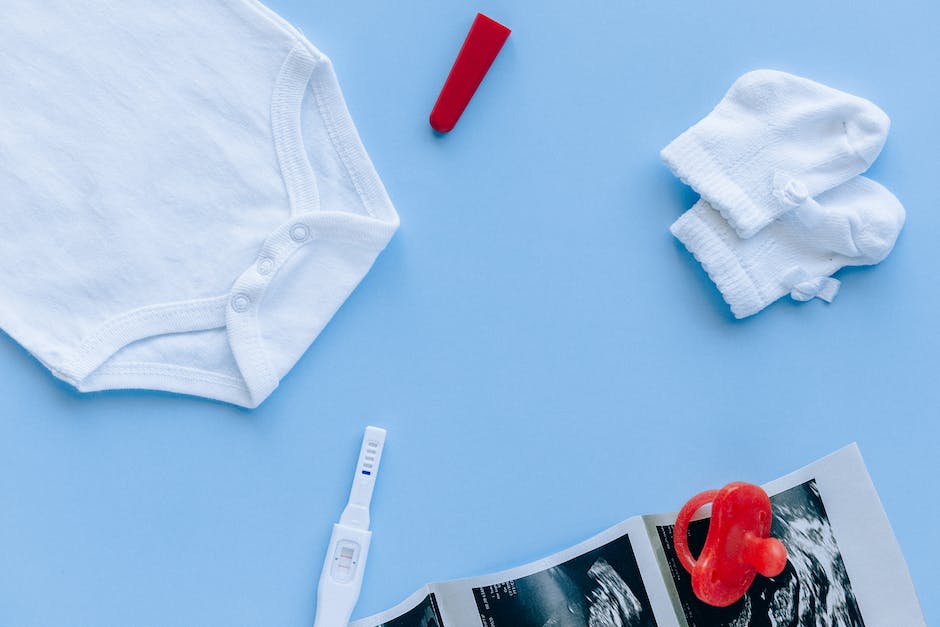The question of whether apple juice can make a pregnancy test positive has sparked curiosity among many, leading to a desire for clear and accurate information on this matter. In order to better understand this query, it’s important to dive deep into the components of apple juice and their potential effects on hormone activity and pregnancy. Moreover, understanding how home pregnancy tests work will offer valuable insights that can help determine the validity of this claim.
Apple juice components and their effects
Among the numerous components found in apple juice are natural sugars, vitamins, minerals, and phytonutrients. These compounds can have various effects on the human body, including influences on metabolism, immune function, and overall health. One compound found in apple juice is fructose, a natural sugar that serves as a primary energy source for cells. While natural sugars can be beneficial when consumed in moderation, excessive intake of fructose has been implicated in several health issues, such as obesity and insulin resistance.
Apple juice is also a source of valuable vitamins and minerals, including vitamin C, potassium, and iron. Vitamin C is a potent antioxidant, which helps protect the body from free radicals, unstable molecules that can cause damage to cells. This vitamin also supports immune system function and collagen production, which is essential for healthy skin, bones, and connective tissue. Potassium, another vital mineral found in apple juice, plays a critical role in many physiological processes, including muscle function, nerve signaling, and electrolyte balance. Iron, also present in apple juice, is essential for oxygen transport in red blood cells and many other metabolic processes.
Phytonutrients, naturally occurring plant-based compounds with potential health benefits, are also present in apple juice. Phytonutrients such as flavonoids and phenolic acids have antioxidant properties, which help fight cellular damage and inflammation. Some of these compounds have shown beneficial effects in reducing the risk of heart disease, stroke, and certain types of cancer. It is worth noting that the concentration of these phytonutrients can vary depending on the type of apple, juicing process, and storage conditions.
Regarding hormone activity, some studies have suggested that consuming large amounts of apple juice may have an impact on hormonal balance in women, due to the presence of phytoestrogens – plant compounds that can mimic the action of estrogen. However, the levels of phytoestrogens in apple juice are significantly lower compared to other foods, such as legumes, and their potential effects on hormonal balance, including pregnancy hormones, remain unclear.
The question of whether apple juice can make a pregnancy test positive stems from the idea that compounds found in apple juice might interact or interfere with the detection of the human chorionic gonadotropin (hCG) hormone by home pregnancy tests. hCG is a hormone produced by the placenta during pregnancy, and its presence is used as an indicator of pregnancy in most over-the-counter pregnancy tests. Despite apple juice containing various components with different biological effects, there is no scientific evidence to suggest that consuming apple juice or any of its components can lead to a false-positive pregnancy test. The interaction between the compounds found in apple juice and the hCG hormone detection process in home pregnancy tests remains largely unexplored, and further research is necessary for a more comprehensive understanding.

Pregnancy test mechanisms
Home pregnancy tests are specifically designed to detect the presence of the human chorionic gonadotropin (hCG) hormone in a woman’s urine. Produced by the placenta after a fertilized egg implants itself into the uterine lining, typically around six days after conception, hCG is only present in the body during pregnancy. As such, detecting this hormone serves as a reliable indication that a woman is pregnant. Considering that there is no scientific evidence to suggest that apple juice affects the outcomes of pregnancy tests, it is crucial to rely on the accuracy of these tests, specifically designed to detect hCG in a woman’s body.
The science behind home pregnancy tests relies on the principle of a biochemical reaction between hCG in the urine and a specific antibody present on the test strip. When a woman’s urine makes contact with the test strip, the hCG binds to the antibody, leading to a visible change in color. Most pregnancy tests employ a colorimetric assay, where one line appears if the test is negative (no hCG detected) and two lines appear if the test is positive (hCG is detected).
Home pregnancy tests are highly sensitive, with some being able to detect hCG levels as low as 20 mIU/mL. This means that they can accurately detect pregnancy even before a woman misses her period, usually within 10-14 days after conception. However, certain factors can lead to false positives or negatives, such as testing too early, taking certain medications, or user errors in reading the test results.
The possibility of apple juice causing a false positive on a pregnancy test is minimal to nonexistent. Some websites have circulated claims that apple juice contains compounds that mimic the structure of hCG and can therefore trigger a false positive result on a home pregnancy test. However, there is no scientific evidence to support this notion, and most experts regard it as a myth. In reality, apple juice is not known to contain any substances that could interfere with the specific antibody-antigen reaction used to detect hCG in home pregnancy tests.
When using home pregnancy tests, it is essential for individuals to follow the instructions carefully and be aware of any factors that may affect the accuracy of the results. Although apple juice is unlikely to cause a false positive, other substances such as medications, health conditions, or varying levels of hCG in the urine can lead to inaccurate results. If a woman suspects she is pregnant and receives conflicting results from home pregnancy tests, it is recommended that she consults a healthcare professional for further evaluation.

Interference with pregnancy test results
In addition to considering the impact of external factors on home pregnancy test results, proper technique during testing plays a crucial role in ensuring accuracy. Carefully following the instructions can help prevent false or misleading results. This may require using a sufficient amount of urine, adhering to the correct timing, or avoiding misinterpretation of the outcome. By taking these precautions, individuals can increase the likelihood of obtaining a reliable assessment of their pregnancy status.
Another issue that can affect the accuracy of home pregnancy tests is the use of expired or damaged test kits. When a test kit has expired or has been exposed to extreme temperatures or humidity, the test’s reagents may no longer function properly, rendering the results unreliable. Therefore, it is always recommended to check the expiration date of a test kit and ensure its proper storage before use.
In addition to the aforementioned concerns, there have been claims that certain substances, such as apple juice, can interfere with the results of a home pregnancy test and potentially cause a false positive result. Apple juice contains natural sugars and some acids that can hypothetically react with the chemicals in a pregnancy test. However, this would require a significant amount of apple juice, and it is unlikely that an individual would accidentally introduce such a large quantity into a test.
Moreover, the majority of home pregnancy tests are designed to detect the presence of the hormone human chorionic gonadotropin (hCG), which is only produced during pregnancy. Although it is true that some substances might interfere with test results by causing chemical reactions, it is highly improbable that such interference would mimic the specific reaction triggered by hCG. Consequently, while it is possible for substances like apple juice to cause some level of interference, it is unlikely to produce a false positive result.
In summary, it is crucial for anyone using a home pregnancy test to be aware of factors that can interfere with the test’s accuracy, as well as ensuring the proper usage and validity of the test itself. Misconceptions and misinformation may lead to confusion about substances like apple juice, which theoretically could interfere with the results, but the likelihood of this occurrence is relatively low. The most accurate results can be achieved by following test instructions carefully and using a test kit that is properly stored and within its expiration date.

Apple juice’s influence on pregnancy test
One such common misconception is the belief that consuming apple juice can lead to a false positive result in a pregnancy test. Understanding how a pregnancy test works can help debunk this myth. Pregnancy tests measure the presence of the hormone human chorionic gonadotropin (hCG) in a person’s urine, which is primarily produced within the placenta when a woman is pregnant. A higher level of hCG typically indicates pregnancy. While it’s essential to recognize factors that might influence the results, the connection between apple juice and false positive readings is largely unfounded and unsupported by scientific evidence.
There have been some claims that the sugar or acid content in apple juice could somehow interact with the chemicals in the test strip, leading to a false positive result. However, scientific research and evidence do not support these claims. According to Dr. Sherry Ross, an OBGYN and author, there is no scientific foundation to support apple juice causing false positives on a pregnancy test. The hormones detected in those tests are unique to pregnant individuals, and apple juice would not contain or produce such hormones.
It is also worth considering that, in addition to not containing any hCG hormone, apple juice is considered a diuretic. Diuretics can cause a person to produce more urine, which can ultimately dilute the hCG concentration in urine samples. As a result, if there were any impact of apple juice on pregnancy tests, it would more likely lead to a false negative rather than a false positive outcome.
Some factors can indeed lead to false-positive pregnancy tests, such as certain medications, hormone imbalances, or even evaporation lines on the test strip. However, apple juice consumption is not among these factors. It is essential to follow the pregnancy test instructions carefully and to consult a healthcare professional if there is any doubt about the results.
In conclusion, apple juice, despite being a popular drink among many people, has no proven effect on the accuracy of a pregnancy test. False positive results may occur for various reasons, but the consumption of apple juice is not one of them. To ensure accurate pregnancy test results and to receive appropriate guidance during this potentially life-changing time, it is always recommended to consult with a healthcare provider.

Tips for accurate pregnancy testing
It is essential to dispel the common myth circulating that apple juice can produce a false positive result on a pregnancy test. This myth has been debunked, as apple juice should not interfere with the most common over-the-counter pregnancy tests. These tests rely on a chemical reaction with the hormone human chorionic gonadotropin (hCG) to determine whether an individual is pregnant. Nonetheless, there are other factors to consider when seeking to ensure accurate pregnancy test results, and consulting with a healthcare provider is always the best course of action.
Correct usage of pregnancy tests is critical for accurate outcomes. Reading and following the test’s instructions carefully will help diminish the chances of obtaining false results. Some tests require users to collect a urine sample in a clean cup and then dip the test strip into the urine, whereas others direct users to hold the test strip in a stream of urine. Ensuring the adequate saturation of the test strip and adhering to the recommended waiting time for results can help prevent inaccurate readings.
Timing is also a crucial factor for ensuring accurate pregnancy test results. hCG levels are typically higher in the morning, so tests performed in the early morning hours will generally provide more accurate results. Additionally, testing too soon after conception, before hCG levels have risen sufficiently to be detected, can yield a false negative result. Waiting until after a missed period, when hCG levels are higher, can help improve test accuracy.
To interpret test outcomes correctly, it is important to examine the test within the specified timeframe outlined in the instructions. Reading the test too early or too late can lead to misinterpretation. Furthermore, some tests utilize digital displays to reduce confusion, whereas others employ more traditional, line-based indicators. Familiarizing oneself with the specific indicators for the test being used can help ensure the correct interpretation of the results.
The potential for medication interference is another aspect to consider, as some medications, such as fertility drugs containing hCG, can produce false positive test results. In such cases, consulting with a healthcare provider is recommended. Additionally, a blood test performed by a healthcare professional can provide even more accurate and definitive results, as they can detect lower levels of hCG compared to over-the-counter tests. Regardless of the testing method employed, understanding and following practical and evidence-based recommendations will help ensure accurate pregnancy test outcomes.

After thoroughly exploring the assumed relationship between apple juice and pregnancy test results, along with the intricacies of test mechanisms and potential factors that may interfere with accuracy, it becomes clear that ensuring proper test usage is essential. By following practical recommendations for timing, correct usage, and accurate interpretation of pregnancy test outcomes, individuals can confidently rely on their results and make informed decisions based on accurate information.